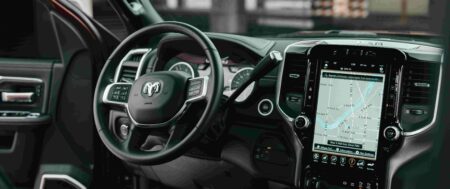Car Dealerships that Work with Bad Credit
In the world of automotive financing, individuals with less-than-ideal credit face unique challenges when seeking to purchase a vehicle. However, there is a segment of car dealerships that work with bad credit near me, in which Auto Finance Denver understands the obstacles faced by individuals with poor credit histories and offers specialized financing options to accommodate their needs. By partnering with lenders specializing in subprime auto loans or offering in-house financing programs, these dealerships strive to make vehicle ownership accessible to a broader range of customers. This introduction sets the stage for exploring the role of car dealerships with bad credit in facilitating automotive purchases.
Do Car Dealerships Approve Bad Credit?
Yes, car dealerships often approve bad credit auto loans from several buyers, and there are several reasons for this:
Subprime Lending Partnerships
Many car dealerships have partnerships with subprime lenders who specialize in providing loans to individuals with less-than-perfect credit histories. These lenders evaluate loan applications based on factors beyond credit scores, such as income, employment history, and debt-to-income ratio. This allows dealerships to offer financing options to a broader range of customers, including bad credit car loan options.
In-House Financing Programs
Some car dealerships offer in-house financing programs, for car loans, also known as “buy here, pay here” financing. With in-house financing, the dealership acts as the lender, allowing them to approve loans for individuals with bad credit directly. While Denver in-house financing may come with higher interest rates and stricter terms for bad credit cars, it provides a convenient option for buyers struggling to secure financing elsewhere.
Increased Sales Opportunities
Approving auto financing for individuals with low credit scores expands the dealership’s customer base and increases sales opportunities. By offering financing options to individuals with bad credit, dealerships can attract customers who may not qualify for financing at traditional lenders. This enables dealerships to sell more vehicles and generate additional revenue.
Higher Interest Rates
Lenders may approve financing for individuals with less-than-perfect credit but offset the increased risk by charging higher interest rates. Higher interest rates compensate lenders for the higher likelihood of default associated with borrowers with bad credit. While this may
result in higher overall costs for the borrower, it allows dealerships to approve financing for individuals with bad credit while mitigating their risk.
Opportunity for Credit Rebuilding
Approving financing for individuals with bad credit provides an opportunity for them to rebuild their credit. Timely payments on an auto loan to car dealers can help individuals demonstrate responsible financial behavior and improve their credit scores over time. By offering financing options to individuals with bad credit, dealerships contribute to their customers’ efforts to rebuild their credit profiles.
So, car dealerships have various incentives and mechanisms in place to approve financing for individuals with bad credit, providing them with opportunities to purchase vehicles and rebuild their credit.
Call Now For Pre-Qualification Info
What Information is Needed to Fill Out an Auto Loan Application
When filling out a bad credit auto loan application, you’ll typically need to provide various pieces of information to help lenders assess your creditworthiness and determine loan eligibility:
1. Personal Information
This includes your full name, date of birth, Social Security number, current address, and contact information. Lenders use this information to verify your identity and assess your credit history.
2. Employment and Income Details
You’ll need to provide details about your employment status, including your employer’s name, job title, and length of employment. Additionally, you’ll need to disclose your gross monthly income, including wages, salaries, bonuses, and any other sources of income. Lenders use this information to evaluate your ability to repay the loan.
3. Financial Information
This includes details about your current financial situation, such as your monthly housing expenses (rent or mortgage payments), other recurring monthly expenses (utilities, groceries, etc.), and any existing debts (credit card balances, student loans, etc.). Lenders use this information to calculate your debt-to-income ratio and assess your overall financial stability.
4. Vehicle Information
You’ll need to provide details about the vehicle you’re looking to finance, including the make, model, year, VIN (Vehicle Identification Number), mileage, and purchase price. Lenders use this information to determine the loan amount, loan-to-value ratio, and other factors related to the vehicle’s financing.
5. Co-Applicant Information
If you’re applying for joint financing with a co-applicant (such as a spouse or family member), you’ll need to provide their personal and financial information as well to car dealers.
Therefore, car buyers should provide accurate and detailed information for auto loan applications, which is essential to ensuring a smooth and efficient approval process. So you should be prepared to gather and organize the necessary documentation to support your application and increase your chances of securing favorable financing terms, especially if you have a poor credit score.
Which Credit Score do Car Dealerships Use
For the car buying process, car dealerships use a variety of credit scoring models to assess the creditworthiness of loan applicants. While specific scoring models may vary, dealerships commonly rely on credit scores from major credit bureaus such as Auto Finance Denver and Titan Auto Group. These credit scores are based on information in your credit report, including payment history, credit utilization, length of credit history, types of credit accounts, and recent credit inquiries. While different scoring models may produce slightly different scores, dealerships generally consider applicants’ credit scores from these major bureaus when evaluating loan applications. So if you want to buy a reliable vehicle with low credit scores, you must go for these loan offers.
Call Now For Pre-Qualification Info
How Can I Improve My Auto Loan Terms?
If you want to improve your auto loan terms, for a car loan from a bank or credit union, it’s a good idea, as it involves several strategies aimed at strengthening your financial profile and negotiating more favorable terms with lenders:
Build Your Credit Score
A higher credit score typically leads to better loan terms as compared to bad credit auto loans. Paying bills on time, reducing debt, and maintaining a healthy credit utilization ratio are effective ways to improve your credit score.
Save for a Larger Down Payment
A larger down payment for a car loan reduces the amount you need to borrow, which can lead to lower monthly payments and better loan terms. Saving for a substantial down payment demonstrates financial responsibility to car dealers.
Shop Around
Compare offers from multiple lenders, including banks, credit unions, and online lenders, concerning poor credit scores to find the most competitive rates and terms. Different lenders may have varying criteria and may offer different loan terms based on your credit profile.
Consider a Cosigner
If you have a poor credit history, a cosigner with a strong credit history may help you qualify for better loan terms. A cosigner essentially guarantees the loan, reducing the lender’s risk and potentially leading to more favorable terms.
Negotiate
Don’t hesitate to negotiate the terms of your auto loan. You may be able to negotiate a lower interest rate, a longer loan term, or other concessions that improve the overall affordability of the loan.

Call Now For Pre-Qualification Info
Why You Should Buy a Car With Bad Credit?
Despite having bad credit to get a car loan, buying a car can still be beneficial for several reasons:
1. Transportation
Owning a car provides essential transportation, enabling you to commute to work, run errands, and fulfill daily responsibilities.
2. Improvement Opportunity
Timely payments on an auto loan can help rebuild your credit over time, potentially leading to improved credit scores and better financial opportunities in the future.
3.Convenience
if you want to buy your vehicle, it offers convenience and flexibility, allowing you to travel at your own pace and schedule without relying on public transportation or ridesharing services. so that is the reason why car buyers should opt for auto loans, even with bad credit.
4. Independence
A car provides independence and autonomy, giving you the freedom to travel where you want, when you want, without limitations.
Call Now For Pre-Qualification Info
FAQs
What interest rates can I expect with bad credit?
Interest rates for bad credit financing may be higher compared to loans offered to those with good credit, but they vary depending on factors like credit history and the lender’s terms.
Do bad credit car dealerships report payments to credit bureaus?
Yes, many dealerships report loan payments to credit bureaus, allowing timely payments to potentially improve your credit score over time.
Can I get approved for financing with bad credit?
Yes, many car dealerships specialize in financing options for individuals with bad credit, offering solutions tailored to your credit situation.
Conclusion
Car dealerships that work with bad credit near me provide valuable opportunities for individuals to secure financing and purchase vehicles, and multiple repossessions despite credit challenges. These dealerships offer tailored solutions, including subprime lending options and in-house financing programs, to accommodate diverse financial situations. While interest rates may be higher and terms more stringent, these dealerships empower individuals to access essential transportation and rebuild their credit profiles. By providing options for car ownership and financial mobility, dealerships that work with bad credit play a vital role in supporting individuals on their journey toward improved financial stability and independence for their next vehicle purchase.








